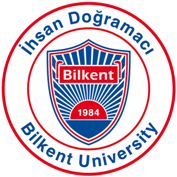Personnel
| Instructor: | Selim Aksoy |
|---|---|
| Office: | EA 423 |
| Email: |  |
Course Information
| Schedule: | Wed 13:40-17:30 (EB 201) |
|---|---|
| Office hours: | Wed 10:40-12:30 (EA 423) |
| Prerequisites: | Probability theory, statistics, linear algebra |
Texts
- R. O. Duda, P. E. Hart, D. G. Stork, Pattern Classification, 2nd edition, John Wiley & Sons, Inc., 2000.
- S. Theodoridis, K. Koutroumbas, Pattern Recognition, 3rd edition, Academic Press, 2006.
- C. M. Bishop, Pattern Recognition and Machine Learning, Springer, 2006.
- A. Webb, Statistical Pattern Recognition, 2nd edition, John Wiley & Sons, Inc., 2002.
- T. Hastie, R. Tibshirani, J. Friedman, The Elements of Statistical Learning, Springer, 2003.
- K. Fukunaga, Introduction to Statistical Pattern Recognition, Academic Press, 1990.
- R. Schalkoff, Pattern Recognition: Statistical, Structural and Neural Approaches, John Wiley & Sons, Inc., 1992.
- A. K. Jain, R. C. Dubes, Algorithms for Clustering Data, Prentice Hall, 1988.
Lecture Schedule
Chapters |
Contents |
|---|---|
Introduction to Pattern Recognition[ Slides ] (Feb 3) |
Topics:
Readings:
References:
|
Bayesian Decision Theory[ Slides ] (Feb 10) |
Topics:
Readings:
References:
|
Parametric Models[ Slides: Part 1 | Part 2 | Part 3 | Part 4 ] (Feb 17, 24, Mar 3, 10) |
Topics:
Readings:
References:
|
Non-parametric Methods[ Slides ] (Mar 17) |
Topics:
Readings:
|
Feature Reduction and Selection[ Slides ] (Mar 24) |
Topics:
Readings:
References:
|
Non-Bayesian Classifiers[ Slides: Part 1 | Part 2 | Part 3 ] (Apr 14, 21) |
Topics:
Readings:
References:
|
Unsupervised Learning and Clustering[ Slides ] (Apr 28) |
Topics:
Readings:
References:
|
Algorithm-Independent Learning Issues[ Slides ] (May 5) |
Topics:
Readings:
References:
|
Structural and Syntactic Pattern Recognition[ Slides ] (May 12) |
Topics:
Readings:
References:
|
Exams
- Midterm exam will be held at EB 201 at 13:40-15:30 (during class hours) on March 31, 2010. The exam will cover all topics from the beginning of the semester until the end of the non-parametric methods chapter.
- Final exam will be held at BZ 05 at 10:00-12:00 on May 18, 2010. The exam will cover all topics from the beginning of the semester until the end of the structural pattern recognition chapter.
Assignments
- Homework assignment 1 (Due: March 24, 2010 as hardcopy in the class)
- Homework assignment 2 (Due: April 21, 2010 as online submission)
- Homework assignment 3 (Due: May 23, 2010 as online submission)
Late submission policy: Unless you make prior arrangements with me (before the due date), no late homework will be accepted.
Grading Policy
| Homework: | 50% |
| Midterm exam: | 20% |
| Final exam: | 25% |
| Class participation: | 5% |
Related Links
- Previous semesters for CS 551
- Duda, Hart, Stork book
- Book's website
- Make sure you check the errata for the particular printing you have.
- Webb book
- Bishop book
- Theodoridis and Koutroumbas book
- Hastie, Tibshirani, Friedman book
- Software resources
- PRTools by the Delft Pattern Recognition Group (in Matlab) (local copy)
- Netlab Neural Network Software (in Matlab) (local copy of software and its documentation)
- Weka Data Mining Software (in Java)
- Bayes Net Toolbox (in Matlab)
- Hidden Markov Model Toolbox (in Matlab)
- SVMlight - SVM training package (in C)
- Sequential Minimal Optimization algorithm for SVM training
- LIBSVM - A Library for SVM (in C++ and Java, with interfaces for additional languages)
- Numerical Recipes (in C)
- Software resources from Pattern Recognition Information web site
- Software resources from Kevin Murphy's web site
- Software resources from Kernel Machines web site
- Software resources from Kernel Methods web site
- Software resources from American Association for Artificial Intelligence web site
- StatLib
- Mathtools.net Technical Computing (in Matlab, C/C++, Java)
- Matlab tutorials
- Data resources
- Pattern recognition related archives
- Computer vision test images
- UCI Machine Learning Repository
- Labeled databases for object detection
- Image database from the University of Washington
- Texture database from the University of Oulu
- Document database from the University of Oulu
- Other databases from the University of Oulu
- Image databases from CMU Vision and Autonomous Systems Center
- Various other datasets from the University of Washington
- Face databases from CMU
- Face databases from MIT
- Another page for face databases
- MNIST Database of handwritten digits
- Shape database from Brown University
- Reuters-21578 Text Categorization Collection
- NIST Scientific and Technical Databases
- RISC: Repository of Information on Semi-supervised Clustering
- Others
- Pattern Recognition Information
- International Association for Pattern Recognition (IAPR)
- IEEE Computer Society Technical Committee on Pattern Analysis and Machine Intelligence (PAMI)
- IAPR Education Committee Resources (Tutorials, data sets, codes, etc.)
- IAPR Technical Committee 1 on Statistical Techniques in Pattern Recognition
- IAPR Technical Committee 2 on Structural and Syntactical Pattern Recognition
- MathWorld (an online encyclopedia of mathematical resources)
- International Society for Bayesian Analysis
- Statistical Learning/Pattern Recognition Glossary
- Statistical Data Mining Tutorials
- Kernel Machines
- Learning with Kernels
- Engineering Statistics Handbook
- Introductory Statistics: Concepts, Models, and Applications
- The Probability Web
